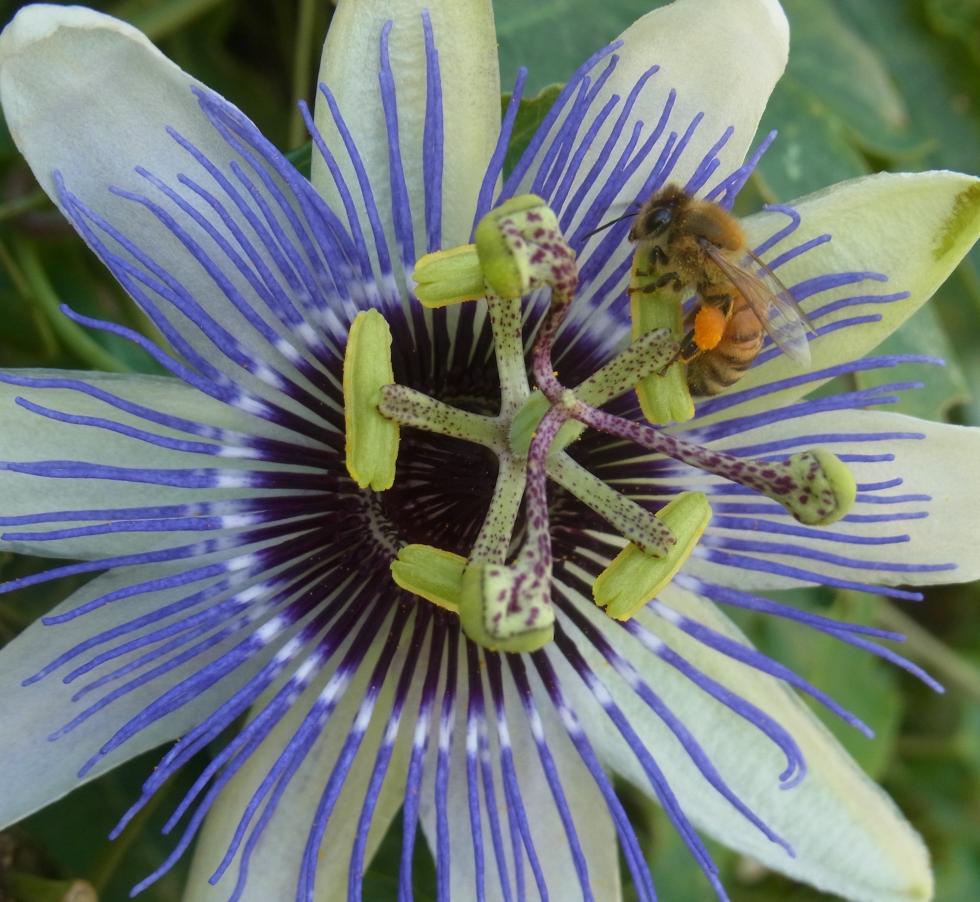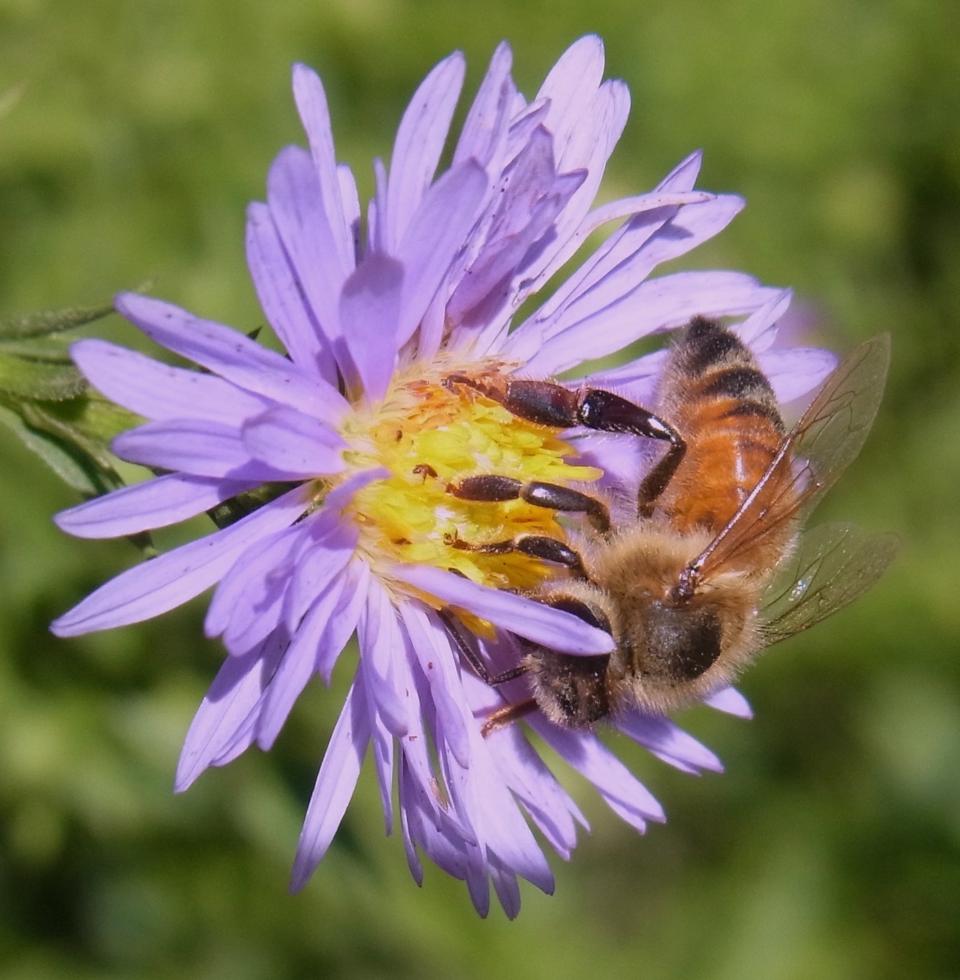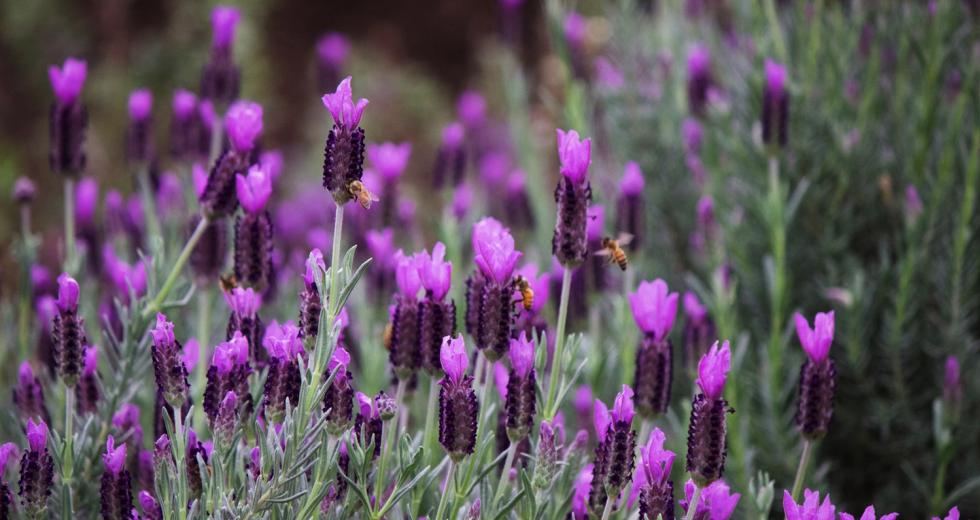As Californians continue to opt for drought-tolerant landscaping, thus requiring less lawn and more plants outside a home, major home improvement chains are committing to selling bee-friendly plants that do not contain neonicotinoids, a widely-used insecticide.
A report released in August by Pesticide Action Network North America, Friends of the Earth and other organizations found that major retailers like Home Depot, Lowe’s, Ace Hardware, True Value and Walmart were selling fewer “bee-friendly” home garden plants that had been treated with pesticides shown to harm and kill bees.
“Retailers are responding to the call for greater protections for pollinators and the market appears to be shifting away from selling bee-killing pesticides,” says Paul Towers, PAN organizing director and policy advocate, in a press release. Towers, who is based in Sacramento, says Home Depot and Lowe’s have already made commitments to phase out the use of “neonics.” He suggests all other retailers get neonics out of their plants and off their shelves as quickly as possible.
Bees, including California’s 1,600 native species, are responsible for pollinating about one-third of the food we eat, including most fruits, nuts and vegetables that complete our diet. Yet bees and other pollinators are in great danger, as the United Nations estimates 40 percent of invertebrate pollinator species, like bees and butterflies, are on the brink of extinction. According to PAN, research has indicated that neonicotinoids on plants and trees are among the primary causes of declining bee populations.
Honeybee on passion vine at the UC Davis Honey Bee Haven. (Photos
courtesy UC Davis Honey Bee Haven)

The report, “Gardeners Beware 2016,” follows previous studies conducted in 2013 and 2014 that showed the presence of neonics in more than half of bee-attractive flowers tested. The latest report shows that only 23 percent of flowers and trees tested nationally — and 15 percent tested here in California — contain neonics at levels that can harm or kill bees.
Their conclusion? Home improvement chains are definitely selling fewer bee-friendly plants treated with harmful neonics than in prior years.
“Our data indicates that compared to two years ago, fewer nurseries and garden stores are selling plants pre-treated with systemic neonicotinoid insecticides,” says report author Dr. Susan Kegley, of Pesticide Research Institute in Santa Rosa, in the press release. “Yet, it’s still not possible for a gardener to be sure the plants they select at the store will be safe for bees and other pollinators.”
Another move to help the livelihood of bees was attempted earlier this year when California Sen. Mark Leno introduced S.B. 1282 to mandate the labeling of neonic-treated plants and seeds sold at nurseries and home improvement chains. The bill did not pass. Sacramento City Councilman Jeff Harris recently introduced a resolution that required the city to prohibit the purchase and use of neonic-treated plants on public property, which was approved by the council.
Harris, a beekeeper for 45 years, says neonics are worrisome because they are systemic, meaning the pesticide eventually works its way into the nectar and pollen of plants, which is dangerous to bees. Although not familiar with the PAN report, Harris says the idea that home improvement stores are curtailing the sale of neonic-treated plants is a positive sign.
Honeybee on “Bill’s Big Blue” aster at the UC Davis Honey Bee
Haven. (Photos courtesy UC Davis Honey Bee Haven)

“Neonics tip the balance,” Harris says. “It just does that much more harm to the bees, damaging their immune system so that they can’t fight off what you would think of as more natural pathogens.” He continues to say: “Pollinators are far too important to our food chain. Anything that has negatively affected our pollinators, then we should do something about it.”
While more bee-friendly plants are now being offered by committed nurseries and home improvement chains, experts believe we still have quite a ways to go to save the bees. “We’re heartened by the progress made to protect bees in urban and agricultural settings,” says Kim Felix in the press release. Felix is co-founder of Bee Love Sacramento, a group that operates hives in backyards and restaurant rooftops. “But we have a long way to go to create resilient farm-and landscapes that protect and promote healthy pollinators, the underpinnings of a successful food and farming system.”
Christine Casey, UC Davis Honey Bee Haven garden manager, horticulturist and entomologist, says the presence of any pesticide in a plant that is going into a garden where bees will forage is indeed something to be concerned about. She values the decrease in neonics-treated plants in home improvement chains, but is equally concerned with what may be used in place of the neonics.
“The bottom line is to not let concern about neonicotinoids stop consumers from planting flowers for bees,” Casey says. “It’s much more important that bees have access to diverse, healthy and full forage than to be worried about if there is some pesticide in there.”



